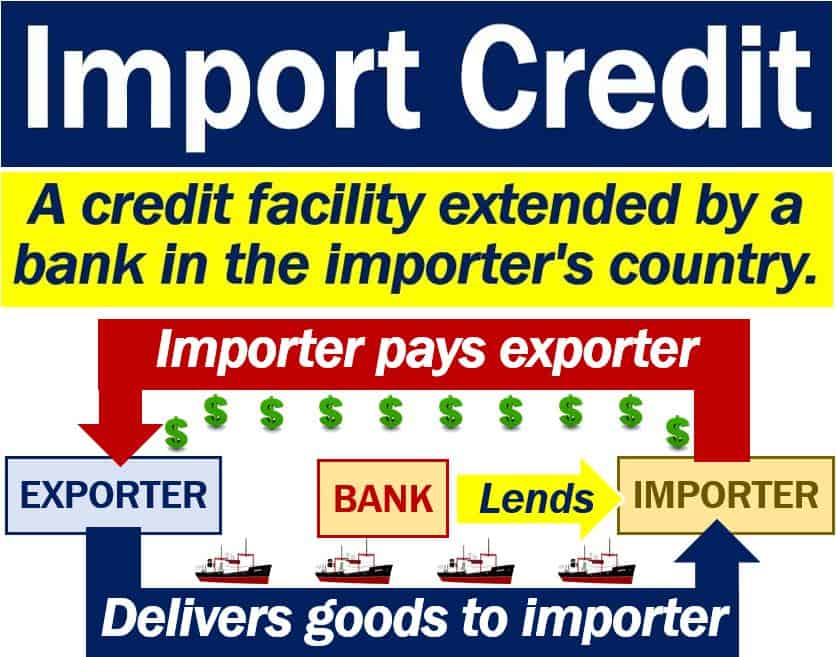Import credit is a credit facility that an importer has with a bank in the country where it resides. The exporter that sends goods to the importer and can draw bills of exchange from that bank. In other words, import credit is a loan facility that an importer has with a lender. That lender is usually a bank.
A bill of exchange is a written order to an individual that tells him or her to make a payment to somebody. Credit is money that a bank or other lender lends to a borrower.
Import credit contrasts with export credit. Export credit refers to a credit facility that an importer has with a foreign bank. Specifically, the loan facility is with a bank in the exporter’s country. The loan finances the export transaction.
The terms come under the umbrella terms ‘import finance‘ or ‘trade finance,’ which cover several types of lending or loan facilities.
Merriam-Webster has the following definition of the term:
“A credit which is opened by an importer with a bank in his own country and upon which the exporter he deals with may draw bills of exchange.”

Import credit helps cash flow
Importers, just like domestic suppliers, often find themselves with cash flow problems.
Cash flow refers to the flow of money, specifically cash, flowing through a company. If you have cash flow problems, you do not have enough money available, i.e., cash, to pay your bills.
Let’s suppose you place a $50,000 order with a foreign supplier. However, that supplier does not offer you credit terms. In other words, it is a cash-on-delivery deal.
Your customers, however, have 60-day credit terms, i.e., your customers pay you sixty days after receiving your invoice.
How are you going to pay your overseas supplier if your customers have not paid you yet? How are you going to do this if your company’s reserves are less than $50,000?
If you ask your bank for a $50,000 import credit line, and it approves your application, you can pay your overseas supplier.
Put simply; import credit helps ease your cash flow problem so that you can continue doing business.
